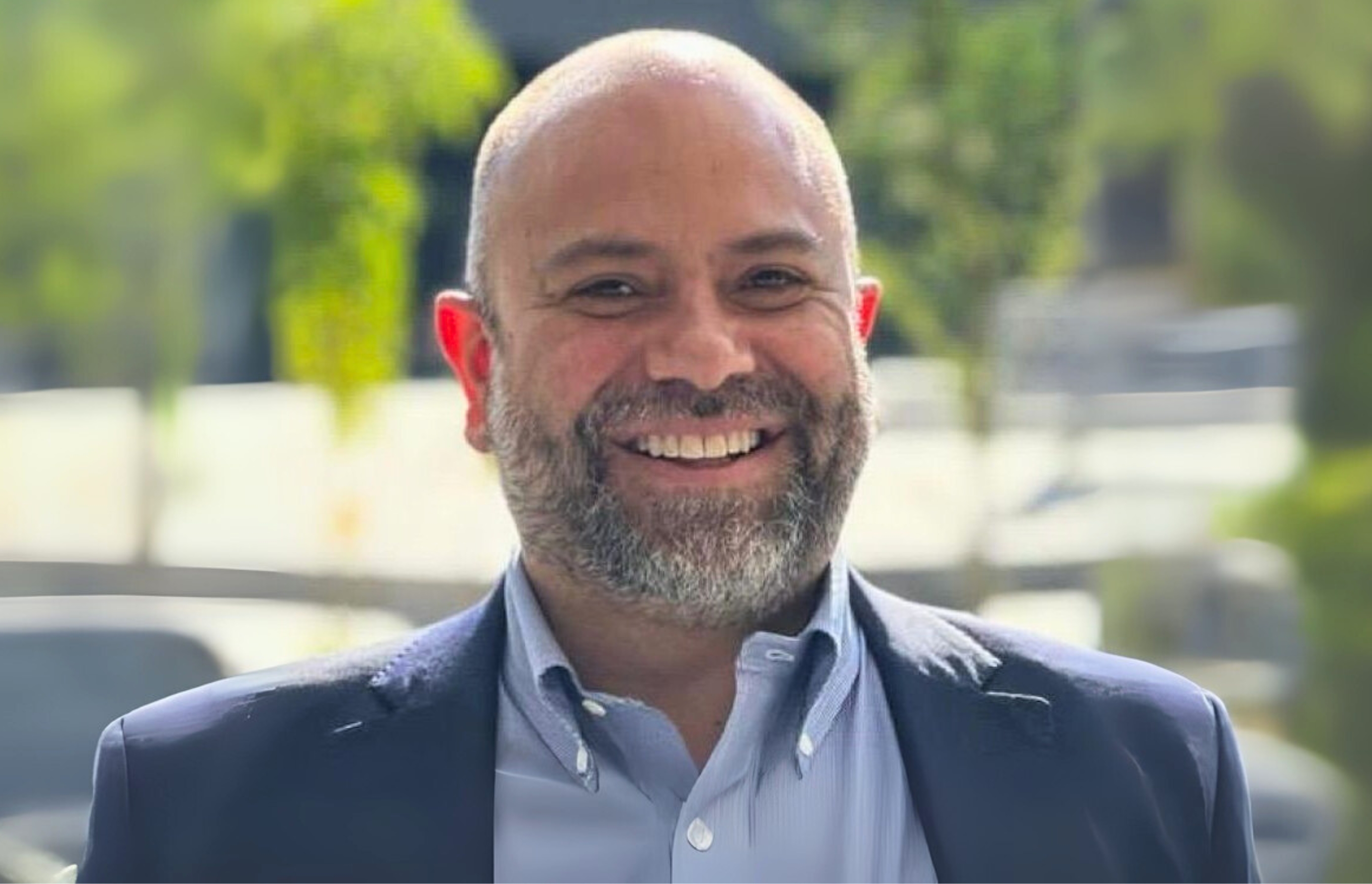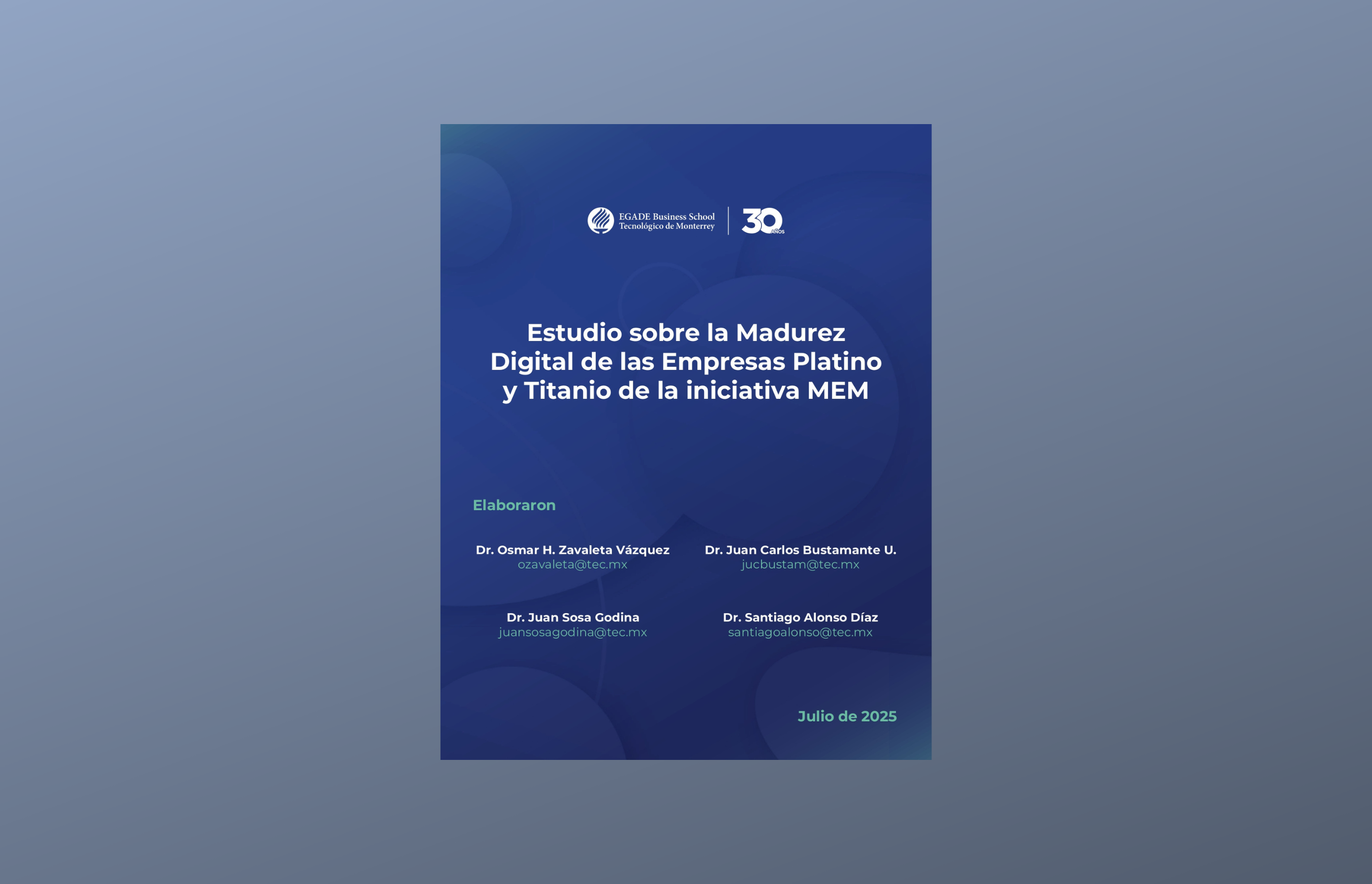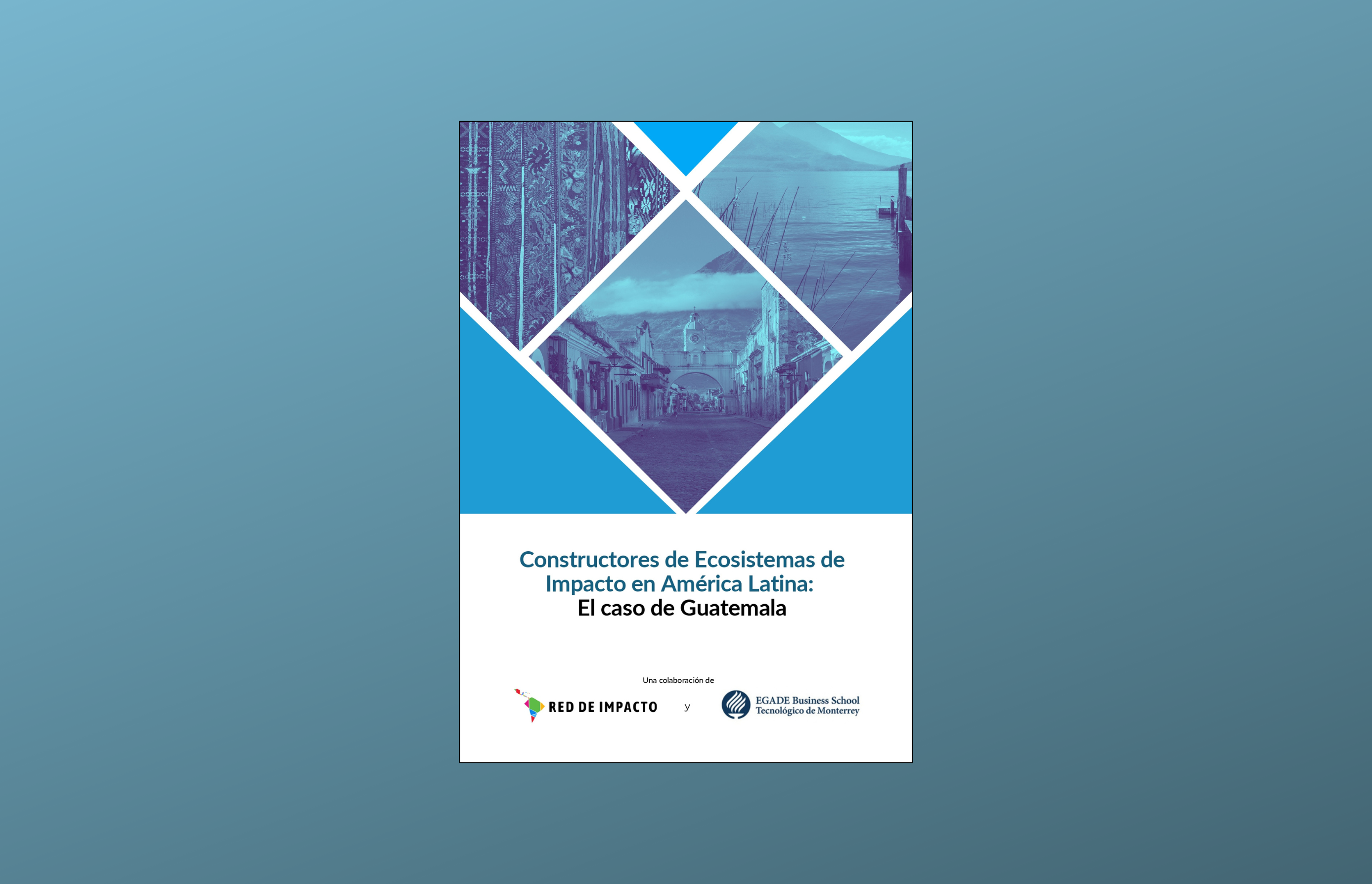Estudio sobre la madurez digital de empresas Platino y Titanio de la iniciativa MEM
23 Julio, 2025

Explora las últimas tendencias, investigaciones y análisis en negocios, liderazgo y economía de EGADE Business School.

Estrategia
Sostenibilidad


Ética
Finanzas
Sostenibilidad

Mercadotecnia



Innovación y Transformación Digital

Sostenibilidad
Innovación
Mercadotecnia
Innovación
Talking Ideas